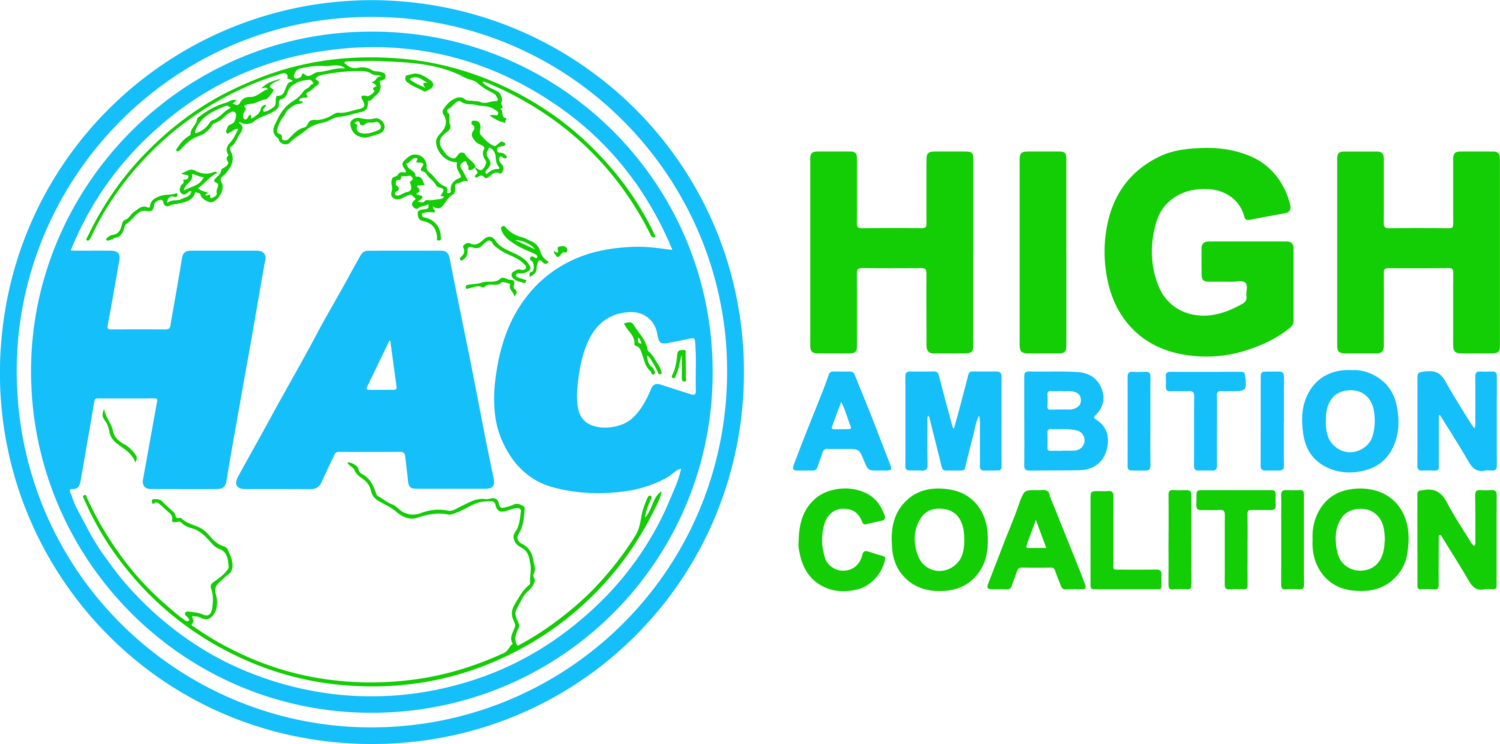Open Letter to President Lula on the Occasion of the Belém Climate Summit
Dear Mr. President,
Thirty years ago, Brazilian diplomacy helped deliver the United Nations Framework Convention on Climate Change alongside the other Rio Conventions which have acted as the bulwark for environmental diplomacy ever since.
Ahead of COP21 in Paris, the Marshall Islands brought the High Ambition Coalition (HAC) together to fight for the 1.5°C temperature limit and for a framework that could deliver it. Brazil became a vital part of that coalition, swinging momentum behind the pursuit of the 1.5 goal that is central to a safe future for all, especially those of us in the Pacific islands.
Through the international cooperation that the Paris Agreement embodies, much has since been achieved. The projected temperature rise has reduced from around 4°C to around 2.7°C, renewable energy investments have increased, and adaptation initiatives, like early warning systems, are expanding. Yet the impacts of climate change are being felt worldwide. In 2025, the global cost of climate-linked disasters in the last quarter century reached more than US$18 trillion. Our first catastrophic climate tipping point was reached, with the widespread mortality of coral reefs now seemingly inevitable. Unless we act now, the Amazon is likely not far behind in suffering a similar fate.
COP 30 finds us at a crossroads. One where we can chart a way forward grounded in science and in line with current realities or else hide ourselves away to await a more opportune geopolitical environment for bold action, while the impacts of climate change worsen across the world. Your leadership will be instrumental in determining the road we travel.
A decade on, I am writing to you, as the convenor of the HAC, to encourage you to take the bold path. That path requires us to do two things: deliver on the promises already made, and double-down on ambition for everyone's safety and security presently and for generations to come.
As we consider the outcomes needed in Belem, the International Court of Justice Advisory Opinion shows us the way. Its affirmation of the IPCC's reports as the best available science on the causes, nature and consequences of climate change and the basis for decision making under the UNFCCC, and that the 1.5°C threshold is the primary temperature limit to pursue, endorses the work of the High Ambition Coalition over the last decade and inspires us to reinvigorate our efforts to keep 1.5°C within reach.
Yet, the latest nationally determined contributions (NDCs) collectively leave us far off course from 1.5°C. We need the Brazilian spirit of mutirao to mobilize an every-country, all-of-society approach that delivers the extra emission reductions to get us on track. Our window for action is closing rapidly. An NDC Response Plan, launched at COP, guided by your leadership and informed by parties, climate science, indigenous wisdom, the private sector, and all civil society actors, can be the compass that brings us back on course.
For our response to meet the moment, it must include new collaborations and inspiring examples, technological and traditional solutions, and above all the financial support and capacity building that will enable governments to deliver on their NDCs and update them until they align with a 1.5°C future.
Living this future involves every government following through on the promises we made to each other in Paris and at every COP since. We must implement all of the outcomes of the global stock take, including an accelerated transition away from fossil fuels in line with 1.5°C pathways in a just, orderly and equitable manner. I pay tribute to the leadership of Minister Marina Silva in highlighting this issue and we support her call to convene discussions on a global energy roadmap for the fossil fuel transition.
Even if we are successful at minimizing temperature overshoot and rapidly bringing warming back to 1.5°C, under current climate change scenarios, we will still all face an uncertain and potentially perilous future. With today's resources and infrastructure, we will fail to adapt adequately even to the impacts that are already locked in. Failing to adapt means knowingly allowing communities and nature to suffer impacts we already have the tools to minimize or prevent entirely.
We need to ensure that there will be enough money available, in the right form and flowing fast to the frontlines. The adaptation finance gap must be acknowledged, and concrete steps and political commitments made at this COP to start urgently addressing it.
This needs to be part of a larger adaptation package at COP 30 to accelerate implementation and increase support, which reiterates the vital need to develop and implement National Adaptation Plans; responds to the urgent need for grant based and highly concessional finance accessed quickly and flexibly to fast-track adaptation planning and implementation; and includes a robust indicator set to assess the progress and gaps of the global goal on adaptation.
Recent events in the Caribbean remind us of the peril vulnerable communities are in and the vast economic costs of irreversible damage caused by climate impacts. The long-awaited start of disbursement activities in the Fund for Responding to Loss and Damage is very much welcomed. Now the Fund must be appropriately capitalized. We will only know the needs when we know the extent of loss and damage occurring, and this must be regularly assessed from now on.
Last year in Baku, we overcame our differences to strike a new deal on finance. Yet, the gap between the money that was promised and the needs that were identified remains daunting. We must leave Belem with the reassurance that the actions agreed in Baku will be carried through. Bilateral climate finance contributors must deliver on the access enhancements identified under the new collective quantified goal (NCQG) decision. International financial institutions must start reporting on their progress towards meeting the actions invited of them. The donors to, and the boards of, the operating entities of the Financial Mechanism, the Adaptation Fund, the Least Developed Countries Fund and the Special Climate Change Fund need to pursue replenishments of these Funds that will allow them to at least triple annual outflows from 2022 levels by 2030 at the latest. And it is high time we turned our full attention to the third goal of the Paris Agreement and ensure that we make international and domestic finance flows consistent with a pathway towards low greenhouse gas emissions and climate-resilient development.
This year, multilateralism has continued to face significant geopolitical challenges, and environmental diplomacy has suffered from undiplomatic actions inspired by an obstructive and self-interested fossil fuel industry struggling to come to terms with the end of its dominance. Despite these headwinds, we continue to show up. Through 10 years of HAC leadership, we have demonstrated the critical importance of the UNFCCC as a multilateral process and that climate diplomacy cannot succeed without inclusion, equity, and the recognition that every nation, regardless of size or resources, has both a stake in the outcome and a contribution to make. Principled, collective action remains the only path forward.
The Pacific Islands community is very grateful for the efforts of Brazil in corralling the majority support in the International Maritime Organization towards the adoption of the Net Zero Framework. Despite its postponement, we encourage you to continue inspiring those of us who believe in a just, science-led transition for the benefit of the shipping industry, consumers and the planet, to redouble efforts and political support to adopt the framework next year. I stand ready to collaborate with you on this endeavor.
Future generations will look back on this decade, either with admiration or disappointment. COP 30 marks the most challenging and perilous moment yet in the fight to tackle climate change. It truly is the COP of truth. Tackling the climate emergency requires an all hands on deck approach but strong and visionary leadership is essential. I believe Brazil is the right country to lead us, and we stand with you, ready to add the name of Belem alongside Rio as a turning point in our history towards a climate just future for all.
Yours sincerely,
Hilde Heine
President of the Republic of the Marshall Islands
Photo Credits: Chewy Lin

